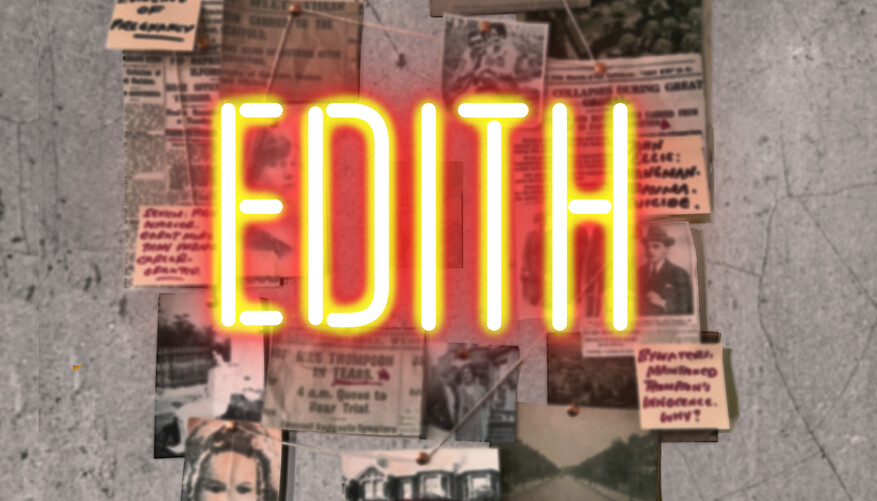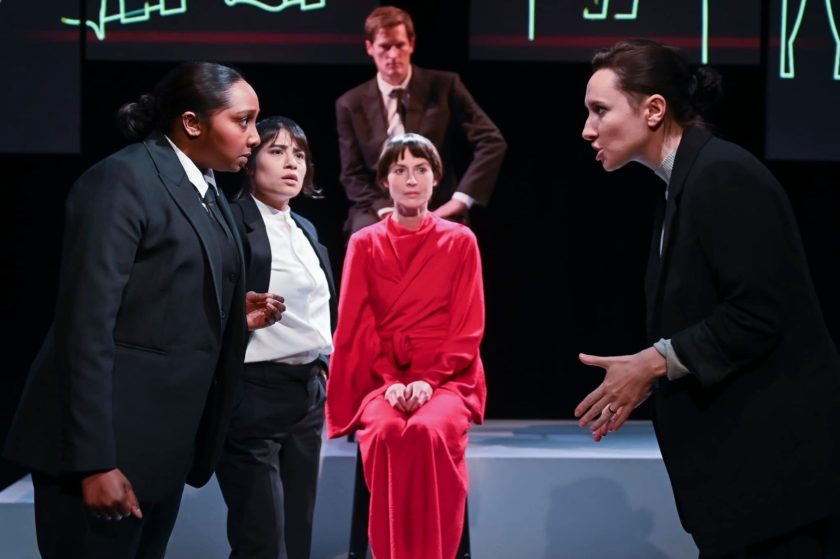
In December 1922, twenty-eight-year-old Edith Thompson was put on trial for inciting the murder of her husband, Percy Thompson. Just two months earlier, twenty-year-old Frederick Bywaters had stabbed Percy as he walked home. The prosecution claimed Edith told him to do it, using love letters sent to Frederick from Edith as evidence. Edith was found guilty, but this verdict inspired a petition signed by over a million people.
The bizarre ‘love-triangle’ between Edith, her husband and her lover, Freddy, is an intriguing tale and there is even a website ‘dedicated to the memory and innocence of Edith Jessie Thompson who died aged 29 at Holloway Prison on 9 January 1923’ filled with transcripts, press coverage, copies of the love letters and reams of photographs- one particularly odd addition, showing Edith between Freddy and her husband, Freddy’s head on her hip and Edith embracing it. It’s certainly worth a glimpse if you’d like to find out more- https://edithjessiethompson.co.uk/
One hundred years later, using the real court transcripts, Crowded Room re-examine the sensational case of one of the last women to be executed in this country. The judge opens the proceedings: “You should not forget that you are in a court of justice trying a vulgar and common crime. You are not listening to a play from the stalls of a theatre.” How very apt then, that we ARE in fact listening to a play from the stalls of the theatre and although we cannot turn back the clock and give Edith Thompson the treatment she may have deserved back in 1922, we CAN re-examine as onlookers and let it teach us a lesson- one of justice, hope and change.
Verbatim theatre is a form of documentary theatre, making use of real people’s words and testimonies. Actors performing this style often speak of a sense of responsibility and loyalty to the real people that they are playing, and the importance of delivering an authentic performance. This is certainly felt throughout this production and during the post-show discussion. It is clear from the outset that a huge amount of research has been done in order to represent this story and its characters, authentically. Although of course, we are talking about people living in the 1920s, so access to video footage, social media, television interviews etc. don’t exist, which must’ve made this all the more challenging for Crowded Room.

Crowded Room are an award-winning theatre company specialising in true stories and they do this exquisitely. Working with women from HMP Styal, they have created a fantastic piece of theatre which emerges the audience in this trial and transports us back to a time when only one woman sat on the jury, when there was no such thing as DNA testing and when the only way of keeping up with the news was in a newspaper or on the wireless.
From the moment the play begins, we are invited to become the jury, to make judgements and decide for ourselves whether we would have sent Edith Thompson to the gallows. When the cast say ‘all rise’, they mean it! Would the verdict be different a hundred years later? The set is simple but effective- a chair for each actor and screens to display character names, locations, days, interviews and Edith reading some of her love letters aloud- a nod to the contemporary in order to provide clarity for the audience. Although the cast seem to be bringing the story into the modern day with the use of technology to drive the action, some modern music choices and up to date fashion, the language of the piece takes us right back to the 1920s, due to the majority of the script being taken directly from transcripts of the time. There feels no need to bring this piece into the modern day as many of its themes and topics are still relevant today.
The piece is structured as the trial would have been and even includes ‘recess’, rather than an interval, during which the house lights are brought up and the actors seemingly come out of character to take a drink or look at their mobile phone. This was a time to reflect as an audience. However, these were also moments to ‘keep-watch’ as the cast still had ‘something to say’ throughout these instances of pause. Ear defenders are donned, possibly signalling the need for calm within the courtroom or to block out the opinions of us, the jury. Or to symbolise the lack of real listening or communication throughout the real trial? During one recess, the actor playing Freddy sits casually and uses their mobile phone- as a twenty year old man would today. What would Freddy’s WhatsApp messages read if he had been able to send them a hundred years ago? All of these little details get the cogs whirring!
With only five in the cast, each has more than one role to play, and all do it wonderfully- though not with costume changes or entrances and exits, but by cleverly adapting their body language, tone of voice and/or accent. This is so brilliantly done that there isn’t room for doubt- we know who’s who throughout. This is also done with a touch of comedy, an important addition to this otherwise serious plot.
It is an interesting time for this tale to be re-told because, believe it or not, it was announced at the beginning of this year that Edith Thompson’s case is to be reviewed as a potential miscarriage of justice. It has been referred to the Criminal Cases Review Commission and a government spokesperson has said it would provide closure to Edith’s family.
To find out more about Crowded Room’s production of Edith, visit their website-
http://www.crowdedroom.org.uk/edith.html
Theatr Clwyd, Mold
Friday 17th to Saturday 18th of March 2023
Cast:
Edith: Ivy Corbin
Freddy: Peyvand Sadeghian
Percy: Mark Knightley
Prosecution: Rosie-Marie Christian
Defence: Harriet Madeley
Creatives
Writer: Harriet Madeley
Director: Madelaine Moore
Producer: Danica Corns
Stage Manager: Tsiala Corboz Werntz
Set & Costume Designer: Sascha Gilmour
Video & Lighting Designer: Luca Panetta
